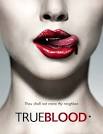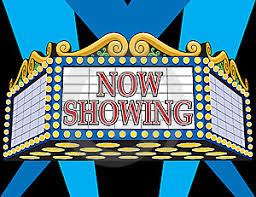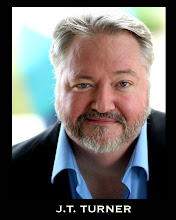During a recent gig in North Shore Music Theaters' A Christmas Carol, I had the honor to work with an awesome cast and crew which included Melissa Daroff. She is a great Stage Manager, and I thought it would be a good idea to get some input on what good behavior for a performer would look like from a Stage Managers perspective. So here is the guest blog:
So when JT suggested that I write something for his blog, I said “Sure I’d love to, but you’ve got to give me a topic. I can’t blog without a topic!” JT thought you might want to hear about the traits I think make for good actor habits. So here’s my list (I am a stage manager after all):
1) Promptness- Don’t be late. Out of respect for your fellow company members, your director, stage manager, yourself and anyone you ever have, or ever will, work with: make it a point to be early.
2) Good organization- Sure stage managers are known for their organization and good note taking, but an actor needs to stay organized as well. I’m sure you find you progress faster, have more fun, and feel more comfortable if you aren’t constantly trying to decipher last week’s notes or figure out where you left your script and score.
3) A good work ethic- Acting in many ways is just like any other job. You get what you make of it and others will respect you for trying your hardest and doing the best job you can.
4) Ask good questions- Confused? That’s OK, just ask a good, well thought out question. There is such thing as a stupid question and it’s usually the one you ask when you are exasperated, frustrated or feeling impertinent and need somewhere to take out that crankiness. It is never a stupid question if you are truly confused or don’t understand direction, critique, instructions, etc. Think about what is unclear and formulate a concise way to ask your question.
5) A sense of humor and a sunny outlook- It’s not rocket science and we’re not saving babies, but all the same theater can be stressful. Check your cruddy day at the door and revel instead in this kooky world we work in. Always be ready to roll with the punches and put on a happy face when things are getting zany. It’s LIVE and that’s why we love it!!
6) Don’t be a baby/ Don’t be a hero- It’s both sides of the coin. Don’t volunteer to carry the heavy props when you are recovering from a back injury, but also don’t say you couldn’t possibly help carry the table because you got a paper cut last week.
7) Be prepared- Know your lines. Remember your blocking. Bring a sweater. (And a snack). Do your homework. Don’t leave your dance shoes at home. It’s not just those Boy Scouts who need to be ready for any situation!
8) Eat your humble pie- When you are wrong, be willing to admit it. “I’m sorry,” and all of its variants go a long way in a business of hearts on sleeves and high tensions. Whether it’s being late for rehearsal, missing an entrance or accidentally elbowing your dresser in the jaw. Saying, “I’m sorry,” (and actually meaning it) is sometimes all you need to solve a sticky situation.
9) Learn from every moment- What is theater if not your classroom? Find in every situation something you can take away and use again in the future. Whether it’s a first time (first Shakespeare, first outdoor amphitheatre, first tour, first musical, etc.), or emulating the good habits of a fellow actor, or trusting in yourself that you can do something you’ve set out to do, or sometimes even learning from a negative (I don’t want to do that again), there is always something to be learned. You can take it with you.
10) Love it- Theater is a job a lot of people love to hate. But if it is to be your life you’ve got to love working in the theater. Maybe not every second of every day in every gig, but when you wake up in the morning you’ve got to want to go to rehearsal and when you get home at night after a show, physically and emotionally exhausted, you’ve got to want to get up in the morning and do it all again.
To sum up all of these habits, it all falls to one word- Respect. Respect your talent, your fellow actors, crew, staff and artists. Respect the show and respect the stage. Respect yourself and most of all respect the Theater, and it will respect you in return.
Thanks for reading.
Melissa
Melissa Daroff is an AEA Stage Manager and also a Theater Educator (amongst other things). She has worked regionally in New England and Dallas, TX and is always excited to be asked to blog. Especially when given a topic to write about.
It isn't a surprise than many of the items on Melissa's list are ones i have touted here at Advice To the Players.It must be true! :)-JT
J.T. Turner
The Actors Sensei.
J.T. Turner
The Actors Sensei.






![Actress Preparing for an Audition [42-16754193]](http://www.visualphotos.com/photo/2x2720503/actress_preparing_for_an_audition_42-16754193.jpg)





































